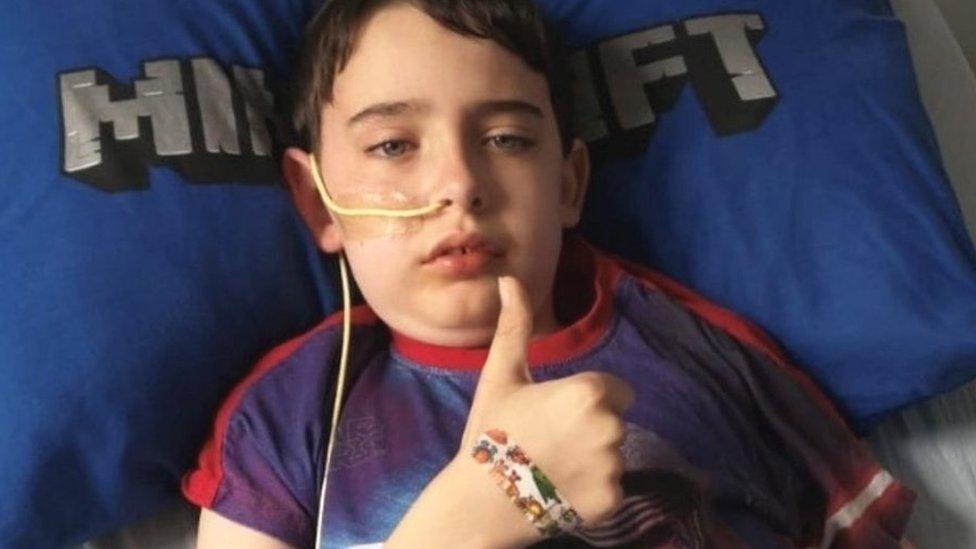Terminally-ill boy 'no longer eligible' for US cancer trial
- Published
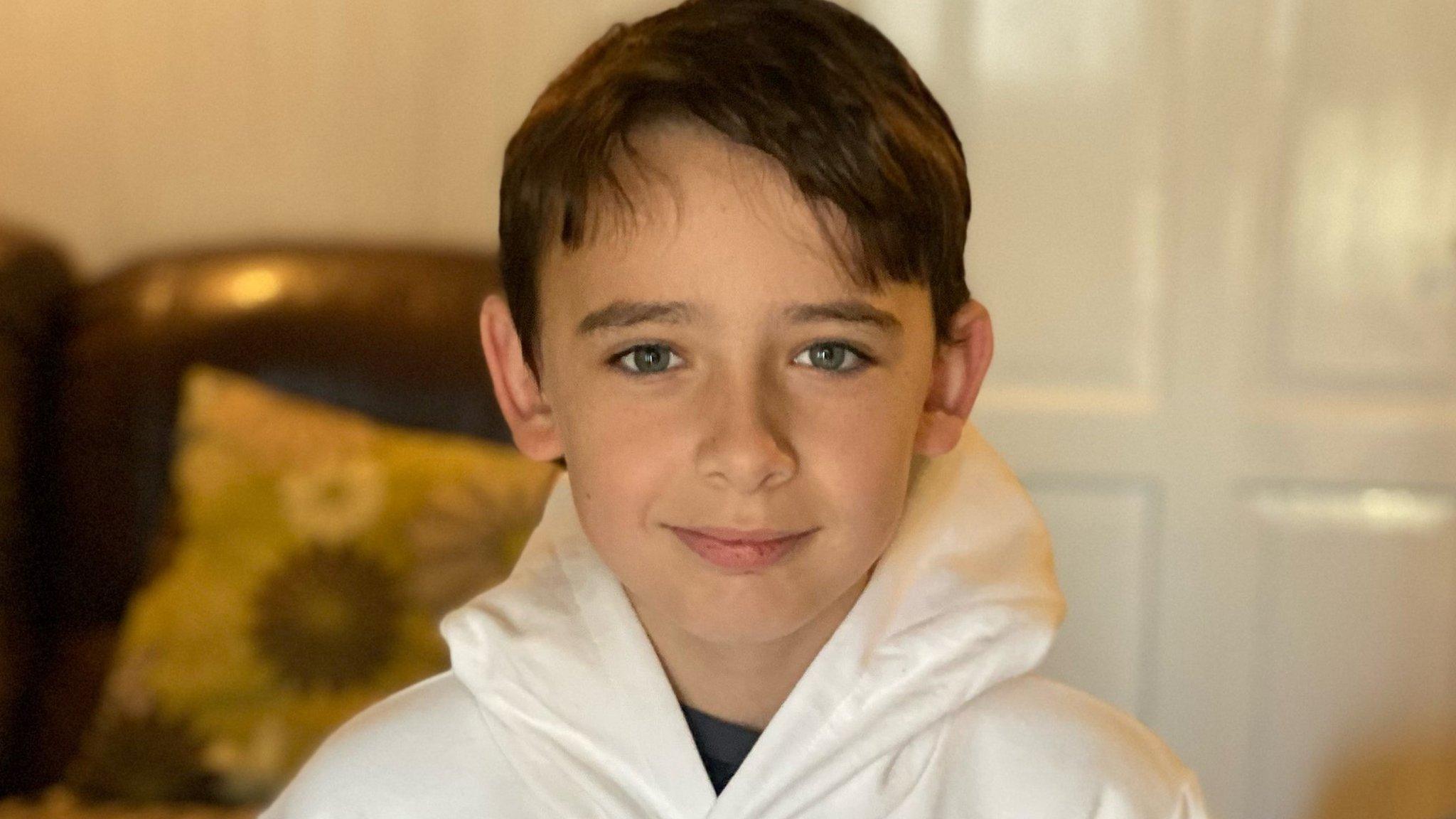
Lucas became unwell and started to lose his balance before he was diagnosed with DIPG
A father said he felt "helpless" after being told his 10-year-old son would not be accepted for a new cancer treatment in the US.
Lucas was diagnosed with Diffuse Intrinsic Pontine Glioma (DIPG) - a type of brain tumour - in April.
Jamie Bottomley, from Rutland, said doctors in Washington told him Lucas did not fit their criteria, despite initially accepting him for the trial.
He said he was "disappointed and frustrated" with the news.
The family was told Lucas had months to live when he was diagnosed with DIPG a week before his 10th birthday.
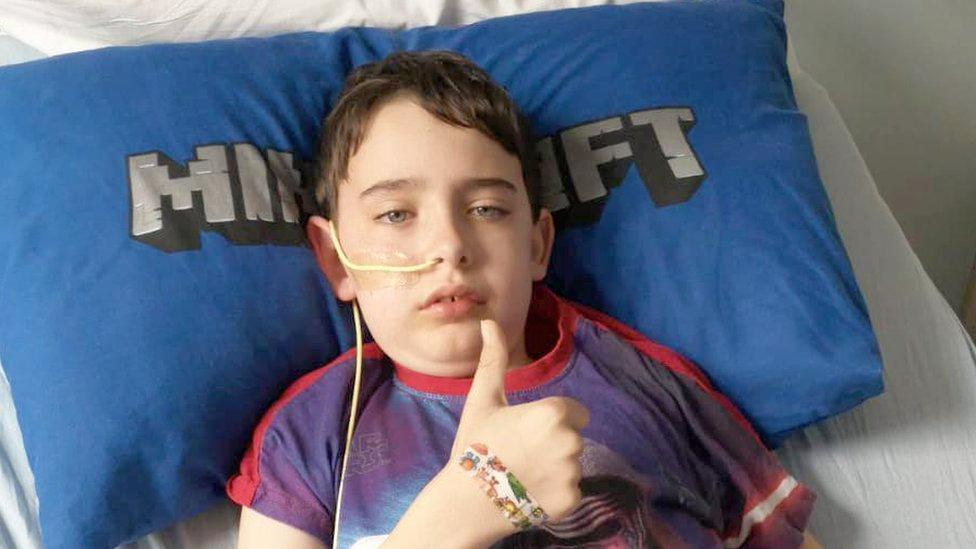
Lucas underwent three weeks of radiotherapy treatment after his diagnosis
As well as undergoing radiotherapy treatment, Lucas was initially accepted for the trial in Washington - as long as the tumour had not spread to his spine.
Mr Bottomley said he felt it was the "best chance".
However, he said the family had now been told doctors were "unaware" Lucas' radiotherapy would be given for three weeks, as the trial required it to take place over six.
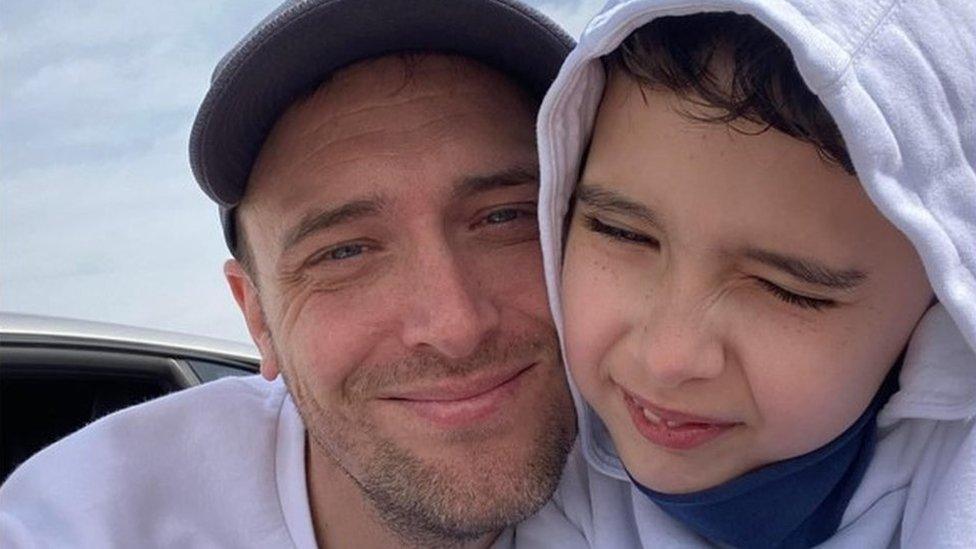
Father Jamie Bottomley said Lucas was always happy and smiling before falling ill
Mr Bottomley, from Oakham, said: "I'm very upset, very angry, disappointed and frustrated.
"I feel helpless as the treatment was the best chance for him. We hoped it would shrink the tumour and kill the cancer cells.
"I thought it was a done thing."
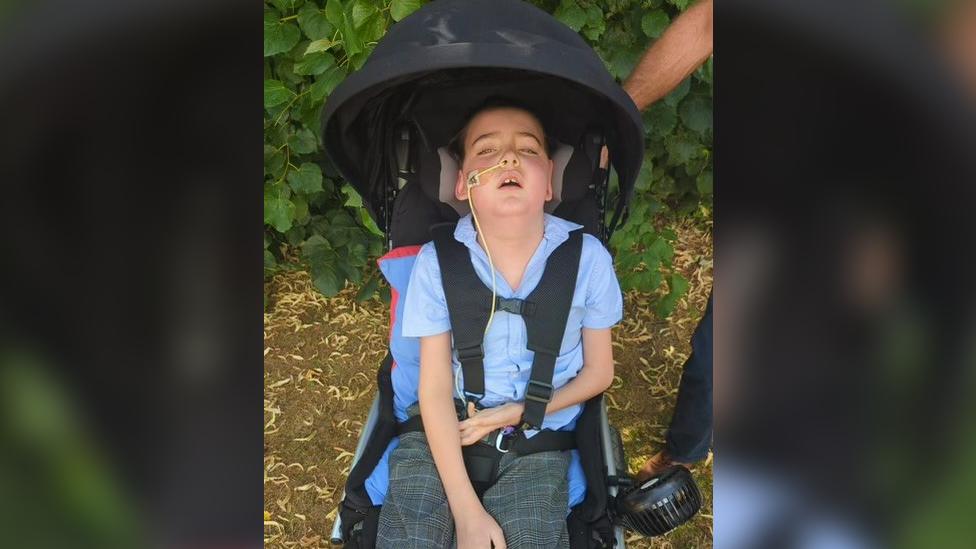
The 37-year-old said since the diagnosis Lucas had "deteriorated rapidly" and was now wheelchair-bound, unable to speak and eat, and struggled to hear.
He said Lucas was also feeling frustrated and "doesn't smile anymore".
Mr Bottomley said the family had now started Lucas on a drug treatment imported via doctors in Germany at a cost of about £2,000 a month.
"It's still early days, but I'm hopeful it's going to make a difference," he said.
"The biggest thing is to get him smiling again.
"I miss him and want him back."

Follow BBC East Midlands on Facebook, external, on Twitter, external, or on Instagram, external. Send your story ideas to eastmidsnews@bbc.co.uk, external.
Related topics
- Published11 June 2022
